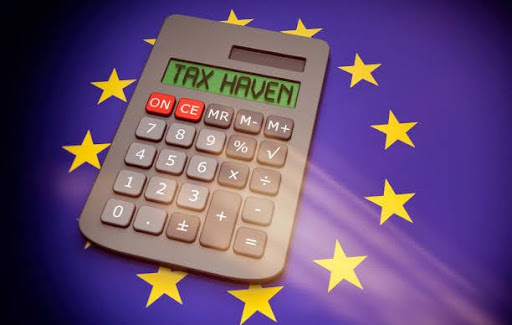Countries create strict tax collection policies to gather money from businesses, which will be used in the country’s progress. Nevertheless, companies used tax havens to avoid taxation. These assist them in registering shell companies in various states of different countries that have nominal or minimal tax regulations. It helps them comply with their country’s strict obligations or avoid taxation.
Although tax havens are for companies to avoid strict policies, these are the most reliable options for scammers to launder money. This article guides about what tax havens are and how companies abuse them.
What are Tax Havens?
Simply put, tax havens are countries or free zones created by the government to register international business. There are minimal or nominal obligations that are easy to comply with without restrictions. Most countries created these to attract more foreign investors to the government. Tax havens have complexities in their obligations, making it challenging for law enforcement agencies to uncover the company’s real owners.
Wealth creates wealth. For a business leader, it is convenient to register a company in a tax haven to hide their profit from the original base country. It will assist them to create a complex ownership structure to disguise their transactions. In each of these tax havens, various regulations allow foreigners to invest and avoid the amount of tax on significant transactions.
Are Tax Havens Legal?
There are various tax evasion advantages in these free zones, but these are legal or why. Wealthy individuals and companies use these tax havens as legal to transact their significant amounts to avoid tax. These loopholes in the tax havens, according to compliance with the laws, can be unethical but not illegal. This is because of its positive impact on third-world countries and assists them in boosting their economies. It also attracts more international investment opportunities for them.
The problem is not tax havens; it is the companies and business owners how they use these. The financial advisor assists them in creating complex ownership structures which assist them in anonymously transacting large amounts. This also helps them in conducting illicit activities while hiding their identity.
Prominent Tax Havens
There are various tax havens for companies to evade tax around the world. They can register a company in UAE-free zones or use the following tax haven countries.
- Panama
- Bermuda
- Switzerland
- Singapore
- Netherland
- Ireland
These are the most prominent and legalized tax havens, which companies and political leaders use to launder money. Some free zones in the UAE are also used as tax havens because of the country’s jurisdiction and stable political environment.
How to Verify Tax Havens Companies?
Due to the complex ownership structure of companies that are registered in tax havens, it’s challenging to verify owners. It is compulsory for businesses to verify company owners to ensure they are legal and not involved in illicit activities. International law enforcement agencies designed Know-Your-Business (KYB) derivatives to comply with these guarantees to protect legal companies from bogus business. Below are the significant measures companies must to check:
Creating Profile
Gather documents from the company before onboarding them to create their profile. To verify what they do, ultimate beneficial owners (UBOs), funding source, and total shell companies registered in the same company’s name. An onboarding company must collect information such as financial statements, location, address, license number, owner details, and UBO screening.
Profile Verification
Only gathering documents is not enough; attesting by various checks is compulsory. It indicates the content written on the papers is not counterfeit. Moreover, companies must check the security features of documents, such as borders, signatures, fonts, etc depending on documents. For the data validation, they should cross-check these from original papers or government-registered databases.
UBOs Verification
As discussed earlier, tax havens have a complex ownership structure. In this, finding ultimate owners and then a genuine source of funding is a challenge. To unveil the ownership structure, the company must conduct due diligence on the company information, including background checks and transaction history. It assists them in creating transparency in their partnership businesses.
Company Screening
For KYB compliance, it is a must for companies to screen UBOs of the companies against the various government and third-party databases. It ensures that the owners and the company are not sanctioned in any country; additional cross-check these against AML/CFT, PEPs, or financial criminals to confirm these are not involved in illegal activities.
Conclusion
The bottom line verification of the company is a must before partnering with them. It ensures the company is legally registered in tax havens and not only on paper. They are operational and working authentically to prevent money laundering and terrorist financing. The verification of the company also secures the business environment, which assists in compliance with AML/CFT regulations.


